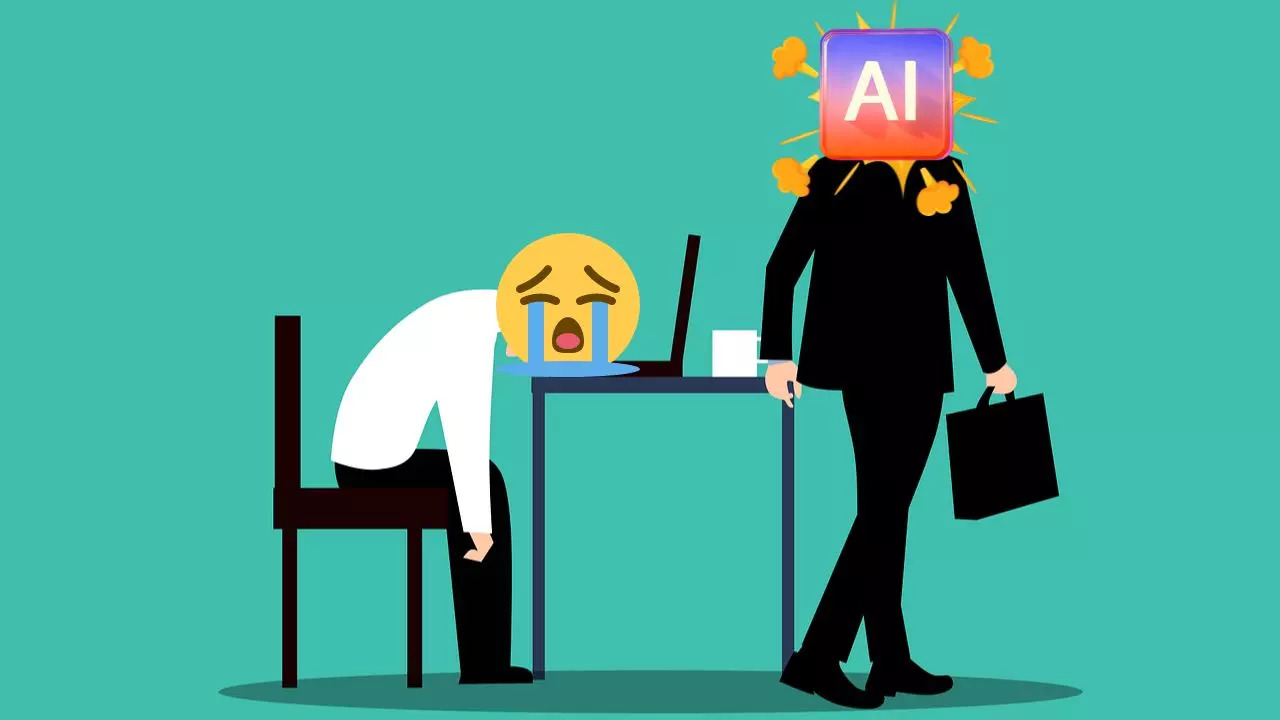Trending:
33 Per Cent Of Workers Fear They Will Be Replaced By AI, Says New Report
??The survey, which gathered insights from 1,200 U.S. professionals, reveals that approximately one-third of respondents expressed concerns about AI potentially rendering certain occupations obsolete.

Representative Image
A recent survey conducted by Washington State University (WSU) sheds light on the growing apprehension among American professionals regarding the implications of artificial intelligence (AI) advancements on their jobs and career trajectories.
The survey, which gathered insights from 1,200 U.S. professionals, reveals that approximately one-third of respondents expressed concerns about AI potentially rendering certain occupations obsolete. Additionally, nearly half of the respondents fear being professionally left behind if they fail to keep up with the rapid pace of technological innovation.
Debbie Compeau, interim dean of WSU's Carson College of Business, emphasized the significance of ongoing training in AI applications both within the workplace and in educational institutions.
According to Compeau, there is a prevalent sense of unease among professionals regarding their preparedness to adapt to evolving technological landscapes. She emphasized the need for business schools to provide clear guidance to students on leveraging AI tools effectively in professional settings.
The survey findings underscore the pressing need for continuous education and upskilling in AI-related competencies. A notable 48% of respondents expressed concerns about potential career stagnation if they fail to seize opportunities to enhance their understanding of AI. Additionally, 32% of respondents ranked job redundancy among their top three concerns.
While the survey reflects widespread apprehension surrounding technological advancements, it also reveals a degree of openness to AI's potential benefits. Only 4% of respondents indicated that their employers exhibited fear of AI technology, while a quarter described their organizations as enthusiastic about its capabilities.
Furthermore, 30% of respondents characterized their organizations as adopting a measured and cautious approach toward AI integration. Notably, a significant majority (74%) of respondents believe that incoming college graduates should possess prior experience with AI technologies.
Rather than advocating for the prohibition of emerging technologies like ChatGPT, Compeau suggests that educational institutions should embrace responsible approaches to incorporating AI into their curricula. Similarly, employers are urged to provide training opportunities to equip current staff with the necessary skills to navigate AI-driven environments effectively. By fostering a culture of continuous learning and preparedness, professionals can alleviate anxieties surrounding the potential displacement by automated systems.
Trending:

Moinak Pal author
Moinak Pal is a full-time tech geek whose daily work involves smartphones and gadgets. He occasionally hits the kitchen floor for some cooked up boile...View More
End of Article
Subscribe to our daily Newsletter!
Related News





EXCLUSIVE | WhatsApp's Head Of Product Reveals Whether Status Updates Will Get Ads In Future

Telegram Updates FAQ On Content Reporting After CEO's Detention, Clarifies Privacy And Moderation Policies

WazirX Hackers Launder $12 Million Via Tornado Cash, 43% Users May Lose Funds

Google Search Monopoly Case: Tech Giant In Trouble, Full Story In 5 Points

Google Set To Be Penalised For Illegal Monopoly In Search; Top Five Things Google Can Do Now








